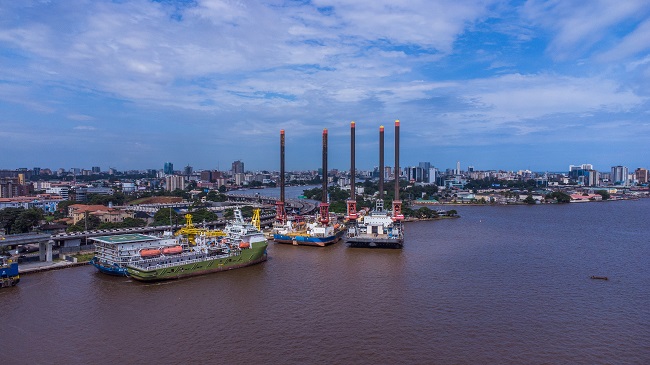The concept of a “green economy” has long been central to discussions on financial strategies in environmental and climate change dialogues. Recently, the emergence of the “blue economy” has gained significant attention, prompting increased efforts to define and integrate this term into environmental discourse. This shift positions the blue economy as a pivotal theme in international climate conversations.

As the government of Azerbaijan hosts the 29th session of the Conference of the Parties (COP29) to the United Nations Framework Convention on Climate Change (UNFCCC) in Baku, also known as the Finance COP, the blue economy remains a key focus of this global gathering. The emphasis is evident not only in events organised within the Ocean Pavilion and Water Pavilion but also in various side events and activities conducted by member countries, non-governmental organisations, activists, and other stakeholders.
In essence, the blue economy refers to the sustainable utilisation of oceanic and coastal resources for economic growth and job creation while preserving marine ecosystems. It encompasses a range of activities, including sustainable fisheries, aquaculture, maritime transport, and renewable marine energy.
Several international frameworks guide economic and social activities related to ocean use. The International Maritime Organisation (IMO) plays a crucial role in ensuring global shipping security and safety, while promoting the sustainable use of oceans. Policy frameworks are under development of which the IMO’s Greenhouse Gas (GHG) Reduction Strategy is chief.
This policy architecture under negotiations is focused on reducing greenhouse gas (GHG) emissions from international shipping activities towards achieving net-zero emissions by 2050. GHG emissions are anthropogenic-related (man-made) carbon dioxide emissions, nitrous oxide and Methane. Limiting these emissions is in line with the 2015 Paris Agreement.
Across the African continent, various technical inputs and regional engagements are evolving, offering valuable insights for international negotiations, including those at COP conferences. A notable initiative is the Leading Effective Afrocentric Participation (LEAP) in the International Maritime Organisation (IMO) project, which establishes shipping emissions baseline data (inventories) across African coastal nations.
The first phase of the LEAP project begins with six case study countries and includes conducting technical analysis of the policy impact of the IMO Strategy proposals on Africa by developing a technical toolkit for the region. The reports generated through this initiative aims to inform policy discussions for African member states to advance the global drive to a more sustainable marine and blue economy sector and “leave no one behind”.
Dr. Dolapo Oluteye is the principal investigator of the LEAP Project. She is a Senior Research Fellow at University College London (UCL) and leads the African Maritime Decarbonisation Programme for the Shipping and Oceans Group at the Energy Institute. In a recent podcast, she highlighted the importance of ensuring that African perspectives are effectively represented in international negotiations to contextualise the African perspective in the modality and methodology of policy development to ensure climate action works in concert with economic development and capacity building.
Reflecting on the outcomes of high-level workshops and engagements across the six LEAP nations – Malawi, Namibia, Liberia, Kenya, Ghana, and Nigeria – and the efforts to develop a technical toolkit for international negotiations, Dr. Oluteye emphasised how the LEAP Project provides essential technical support for policy making for a truly Just Transition. The extrapolated output of the technical analysis provides a picture of how international policymaking can empower Africa in advancing their economic development agendas while maintaining sustainability within their maritime sectors.
She calls for a regional approach to solving the climate change crisis through policy integration and cooperation for a unified Africa with a voice that must be heard. No one can know Africa like an African. So, together, Africa must chart a course to climate neutrality without damaging her economy.
COP29 represents a crucial opportunity to highlight Africa’s vast marine and renewable resources and its youthful population, both of which are critical for catalysing the regions’ economic growth in the blue economy. Additionally, the conference offers the potential to attract investment in green infrastructure development, vital for transforming the maritime value chain through centralising ports as the renewable energy hub, and to refine funding mechanisms that support countries disproportionately impacted by emissions reduction policies, like Africa.
To further advance Africa’s blue economy and maritime sector at COP29 and beyond, it is essential for African nations to clearly define their vision and identity in order to engage effectively in international discussions with evidence-based data, such as LEAP Project outputs to support and influence policy architecture at the IMO.
Promoting regional unity and the collaborative utilisation of resources will be key to achieving collective progress in the blue economy. Furthermore, fostering public-private partnerships will attract investment and innovation, crucial for the maritime sector’s growth and sustainability.
By Seyifunmi Adebote, seyi@climatetalkpodcast.com (Environmental Communicator and Host, Climate Talk Podcast) and Dr. Dola Oluteye, ucftolu@ucl.ac.uk (Senior Research Fellow at University College London)
